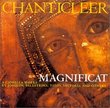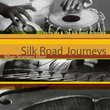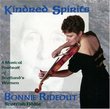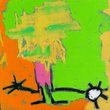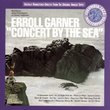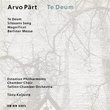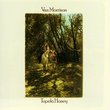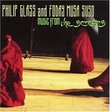| All Artists: Altramar Title: Iberian Garden 1 Members Wishing: 0 Total Copies: 0 Label: Dorian Recordings Release Date: 11/18/1997 Genres: Pop, Classical Styles: Vocal Pop, Opera & Classical Vocal, Historical Periods, Early Music Number of Discs: 1 SwapaCD Credits: 1 UPC: 751758015128 |
Search - Altramar :: Iberian Garden 1
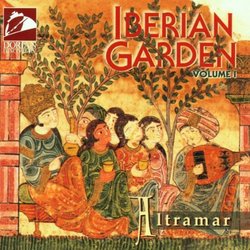 | Altramar Iberian Garden 1 Genres: Pop, Classical
Thanks to recordings like this--and to accomplished performers with a commitment to exploring uncommon musical territory--we can discover endless worlds of fascinating music. This program features "Jewish, Christian, and M... more » |
Larger Image |
CD DetailsSynopsis
Amazon.com Thanks to recordings like this--and to accomplished performers with a commitment to exploring uncommon musical territory--we can discover endless worlds of fascinating music. This program features "Jewish, Christian, and Muslim music in medieval Spain." In the 12th and 13th centuries Spain was a vital center for arts, learning, and religion--many different religious faiths and cultures interacted there. This recording and its follow-up volume give us a small but tantalizing taste of a part of that rich and fruitful period. --David Vernier Similarly Requested CDs
|
CD ReviewsTransporting gaios33 | Berkeley, CA | 09/23/2000 (5 out of 5 stars) "Wow. This recording (and its excellent volume 2) truly shows you the colors of the medieval Iberian world: spiritual, sometimes joyous, full of depth and dark emotions. To commend these performers farther, their recordings of the muwashshahat and a zajal are more convincing as medieval Andalusian music than even the modern Andalusian ensembles in Morocco. Unfortunately, those ensembles (more often than not) use the instrumental combinations which became popular and wide-spread in the 19th c. Altramar uses documentably medieval Arab instrumentation, and an amazing vocal style and clarity of Arabic pronunciation that perfectly frames and complements this repertoire." There are gems in this recording gaios33 | 06/15/1999 (5 out of 5 stars) "There is a lot to commend about this CD, but the one thing that really stands out in my mind is the quality of the vocals. For as beautiful as these trained voices are, the singers do not make the mistake of overwhelming the "feel" of the music by treating it as an operatic exercise. This is a very interesting CD and, for this listener, there are a few songs here which, alone, justify its purchase." Brilliant glimpse into a lost world Irene Rheinwald | Montreal, Quebec, Canada | 06/05/2004 (5 out of 5 stars) "I absolutely adore this set and frequently listen to both, often loud; at first the Arab muwashshah and the one Jewish piyyut were so foreign, I did not know what to make of them. But every time I listened, it was like peeling an onion: layer upon layer of subtle sounds and poetry. Some of the works are dignified and haunting (the Christian Cantar, Cantio, etc.), some belong to a lost secular tradition (the recited 'Poema de Mio Cid'), some frankly sensual and rich ('Ma li-l-muwallah' of Ibn Zuhr). And I was pleasantly surprised to see the great poet Yehuda ha-Levi's work set to music.
Authenticity is the key: these are accomplished scholars as well as musicians, piecing together fragments of foreign manuscript codices with the appropriate modern Moroccan prototypes, and creating period instruments. As another reviewer mentioned, most of the vocal stylings, particularly in the Jewish and Arab pieces, are not operatic, but rather, flat and nasal (but complex and fluid), and thus believable. The Christian interpretations are more 'classical', and utterly exquisite. Pronounciation in each represented language (Hebrew, Arabic, Latin, Gallo-Portuguese, Spanish) is comprehensible and historically accurate. I also appreciated the scholarly liner notes, which broadened my understanding of the music. I've spent much time comparing the Arabic, Jewish, and Latin to the English translations and transliterations. This period of Jewish/Muslim/Christian relations was perhaps one of the most fruitful eras in history, and one of rare co-operation. Scientific, religious, philosophical and cultural achievements reached an all to brief apex of harmony. Rarely does one find such an extraordinary portrait of a Golden Age as represented here in the blend of musical styles." |

 Track Listings (7) - Disc #1
Track Listings (7) - Disc #1